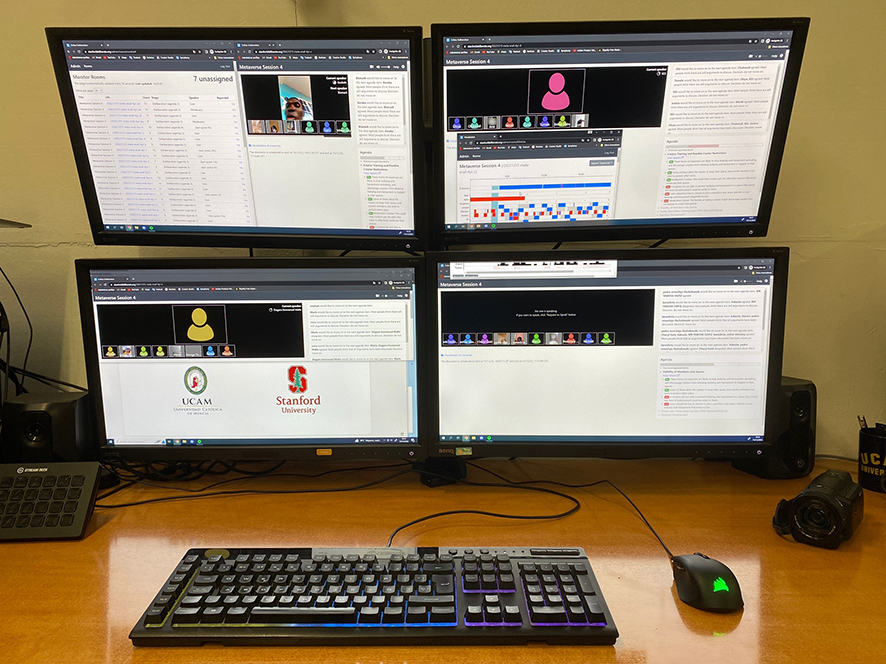UCAM collaborates with Stanford University and Meta in the analysis of human behavior in the metaverse
The project, led by the Deliberative Democracy Lab of Stanford University, has used the deliberative democracy methodology to bring together more than 6,000 people from 32 countries on its online platform, divided into small groups where they discussed the management of closed virtual spaces. in the metaverse.
An interdisciplinary group from UCAM has participated in supervising, monitoring, and observing online sessions. Led by Pau Guardiola, UI/UX Multimedia Director and María Rocasolano, Law professor-researcher, José Ruiz, Law professor; Jorge Gil and Alberto Lanchares, members of the UCAM Multimedia team, and students Angélica González, Arturo Largo, Aldo Méndez, Francisco Poveda and Oliwia Górczewska.
The project seeks to give users a voice in the creation of the metaverse by actively participating in the creation of management policies for the company Meta, the parent company of Facebook, WhatsApp, and Instagram, and one of the main players worldwide in the development of this new frontier.
This project reinforces the role of the UCAM in the development of new technologies such as the metaverse, with the university being at the forefront in the development of advanced technologies through its Vice-Rectorate for Research and its study programs in areas such as computer science, engineering in telecommunications and the humanities.

Immersive educational experiences
UCAM professors and students have been working on research projects on the metaverse, developing new ways of interacting in virtual worlds and creating tools to improve the user experience in these environments. In addition, the University is collaborating with leading technology companies to apply this research and development to actual products and services. These collaborations help ensure that advances in the metaverse are available for application in a wide variety of fields, from entertainment to education to medicine.
UCAM plays an important role in metaverse research and development, especially in educational applications. In the last two years, more than 2,650 of its students have already had immersive educational experiences and more than 228 hours of teaching have been generated in the metaverse. The potential of this technology to improve the teaching experience is very important and key to the digital transformation strategy of UCAM.



